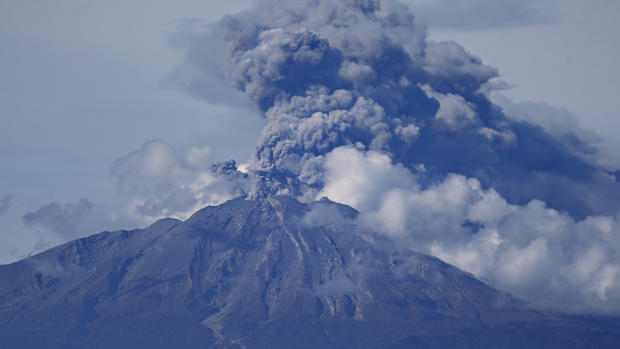Chile volcano won't let residents rest
For most of the week the Calbuco volcano in southern Chile was relatively quiet, but geological officials had warned it was still unstable and could erupt again. On Thursday, those predictions came true.
The volcano, which erupted for the third time since April 22, refused to let up, spewing another supersized plume of smoke and ash miles into the sky, reports CBS News correspondent Anna Werner. The ash has forced the evacuation of a 12-mile radius around the mountain. Some villagers hadn't even finished cleaning up from last week's back-to-back eruptions when they were ordered to leave their homes once again.
"It's tough because we had already removed all the volcanic material from the houses so now to evacuate again is kind of hard," one man said.
The volcano roared back to life last Wednesday after lying dormant for more than 40 years. Over the past week, a blanket of volcanic ash has coated nearby towns, choking the area's salmon industry and disrupting flights all the way to Argentina.
So far, at least 6,000 people have been forced to evacuate, along with some pets.
Many gathered at a shelter were unsure of exactly what they would go back to.
"We are a bit scared, but as soon as this situation improves I believe I'll be able to return to my house, God willing," a woman said.
Officials said this latest eruption wasn't as powerful as the first two. Still, they warn heavy rain expected Friday could lead to devastating volcanic mudflows, capable of destroying anything their path.
The eruptions have also brought the threat of widespread and lasting economic damage. Some volcano experts said it could take the soil more than a year to recover, and the volcano could still erupt again.
